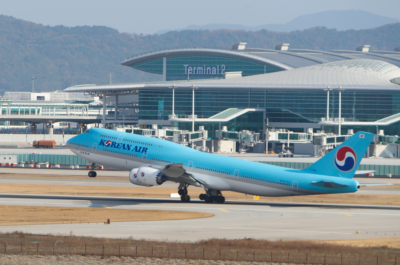Progress Software Corporation, a leading software provider that enables enterprises to be operationally responsive, has predicted that airlines will have to evolve and adapt or perish through 2011. The warning comes from Joshua Norrid, industry vice president, Travel and Leisure, at Progress Software, who also cautions that the ever continuing external pressures will see airlines become much more responsive in their operations and customer needs, in order to survive….

Progress Software Corporation, a leading software provider that enables enterprises to be operationally responsive, has predicted that airlines will have to evolve and adapt or perish through 2011. The warning comes from Joshua Norrid, industry vice president, Travel and Leisure, at Progress Software, who also cautions that the ever continuing external pressures will see airlines become much more responsive in their operations and customer needs, in order to survive.
Based on feedback from customers, as well as its own travel industry research, Progress Software sees five key trends set to impact the airline industry over the next decade.
1. Partnerships, Code Shares, and Alliances to grow at speed and scale: According to published airline alliance data, between October 2009 and September 2010, code share and alliance related services accounted for nearly half of overall business for several major global airlines, a clear signal of the importance of enhancing the flow of transactions across multiple reservation systems and doing so more dynamically.
2. Next-level customer service to come through technology: New technology and ‘next-practice’ procedures are being sought out to help airlines scale, avoid operational delays, and reduce the occurrence of unacceptable customer service. Integrated technology allows real-time visibility into flight, crew, and maintenance operations so that business performance can be constantly analyzed. Adjustments could then be made on the fly to services such that airline managers are able to anticipate the cumulative effects of disruptions prior to schedules becoming compromised.
3. Dynamic social networks and applications will rise around airline networks: Customers are communicating in completely new ways across social networks, making it more difficult for travel companies to fully analyze and respond in a timely and appropriate manner. Fully integrated networks and applications will be essential for airlines to be ‘in the know’ across these newly emerging channels.
4. ‘Pay as you prove’ approaches will be commonplace over the next decade: Dynamic a la carte services, along with the rise of revenue from non-ticket sources, will remain critical through 2011 and beyond, to ensure overall success of several airline business models.
5. U.S. and European industry consolidation will continue: With possible adverse effects to airline efficiencies, schedules and customer services; airlines will be forced to be more operationally responsive in these areas to support the ongoing consolidation trend.
Norrid commented: “It’s no secret that airlines have endured a turbulent decade. Since 9/11 they’ve faced a continuous stream of events that have mostly been out of their control.”
“The challenge of returning to and maintaining long-term profitability is crucial to airline business survival over the decade ahead and depends highly on the ability of the airlines to evolve processes, technology, and services to the next level. In addition, they must learn to survive and thrive in an environment of increased regulation, more demanding customers and the reality that revenue must be generated from sources beyond individual flights.”
“Airlines that understand and embrace these market trends will be one step ahead of the curve through 2011. Unfortunately, many airlines still have some way to go. If they are to stay competitive, they will have to be operationally responsive in order to evolve and adapt to new and existing business opportunities.”
Vicky is the co-founder of TravelDailyNews Media Network where she is the Editor-in Chief. She is also responsible for the daily operation and the financial policy. She holds a Bachelor's degree in Tourism Business Administration from the Technical University of Athens and a Master in Business Administration (MBA) from the University of Wales. She has many years of both academic and industrial experience within the travel industry. She has written/edited numerous articles in various tourism magazines.




















































